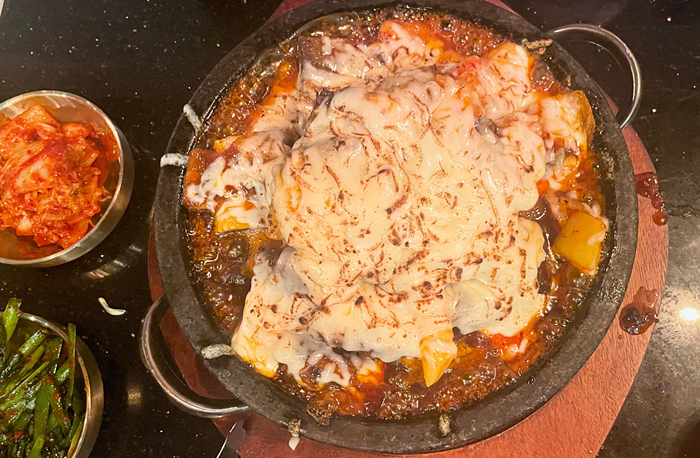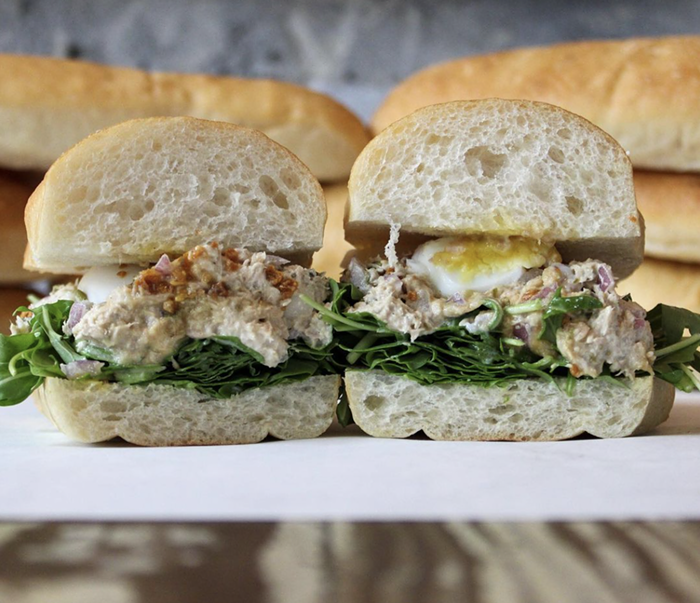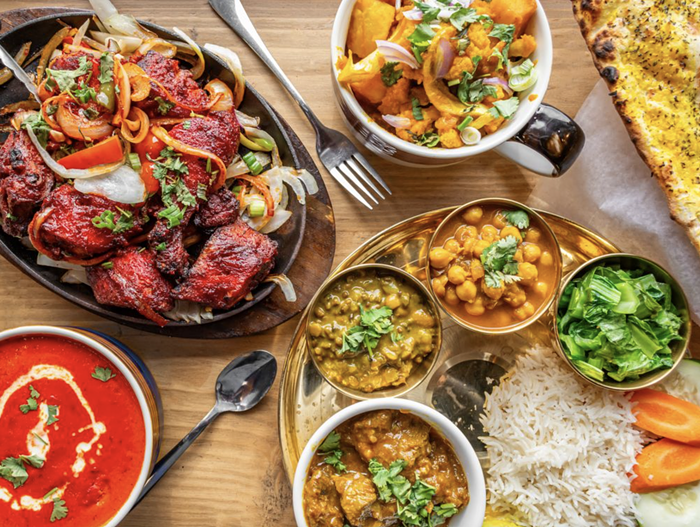I've been on a Jewish food hunt since I received a friend's invitation to his Passover seder last month. Because his apartment is too small for an elaborate sit-down dinner, he decided to have an informal party where everyone would stand. This standing seder became a potluck of Jewish foods including beef brisket, matzo-ball soup, roasted leg of lamb, and macaroons. Our host read from the Haggadah, the book that recounts the story of the 40-year exodus from Egypt and gives the order of the ritual meal, and he explained the symbolism behind some of the traditional seder dishes: Bitter herbs represent the bitter times of slavery; haroset, a fruit-and-nut paste, represents the mortar with which the Jews built pyramids for the pharaohs. I was fascinated and deeply moved. (I am a sucker when it comes to food symbolism.)
I needed to know more, so I turned to The Book of Jewish Food, Claudia Roden's definitive, award-winning cookbook, which, along with 800 recipes (divided into Ashkenazic and Sephardic traditions), includes a thorough (and thoroughly researched) history of the Jewish people. What we've now come to commonly think of as "Jewish food" in America—corned beef, pickles, potato latkes, chopped liver—were the foods of Eastern European Jews. The Jewish delis of New York, now iconic and revered, flourished in the early 20th century simply because in the densely populated Lower East Side, every inch of space in apartments was used, filled by rented beds and mattresses, and working people needed a place to go to for a good meal.
Naturally, all this reading made me hungry for potato knishes and Reuben sandwiches—but Seattle is seriously lacking in the Jewish-deli department. I'd heard rumors of good matzo-ball soup in West Seattle, knishes in Bellevue, and decent bagels behind the Pike Place Market, so I called upon a couple of my favorite Jews to wander with me in search of the comfort foods of their people.
Eats Market Cafe, located in outdoor mall Westwood Village next to a Bed Bath & Beyond, is not specifically a Jewish deli (the menu lists items like a chicken curry salad wrap and barbecue pulled-pork sandwich), but the Jewish foods they do, they do well. The Market Reuben sandwich ($8.50)—piled high with moist and fatty chunks of corned beef brisket (made in-house), sauerkraut, Swiss cheese, and Russian dressing on Essential Baking Company's rye bread—is by far the best Reuben I've had in Seattle. Chicken soup ($6.75 for a not-so-big bowl) comes with two big, tasty matzo balls, more fluffy than firm, with a much-welcomed touch of black pepper. My dining companion, who hails from a family in which matzo-ball recipes were routinely tested and thrown away until they arrived at the perfect taste and texture, opts for chicken soup with homemade noodles—eggy, light—and declares them "just right." We're both a little disappointed by the mild flavor of the chicken broth ("I would tell them to add more bones when they make the stock," he says). But based on their expert way with corned beef, I make a mental note to return to Eats at dinnertime for their slow-braised beef brisket ($16.50).
A few nights later, another Jew and I head out to Bellevue's Factoria Mall to dine at Goldbergs' Famous Delicatessen, the area's most celebrated Jewish deli. The space—massive, with a big, full-service bar and puffy red booths—feels more like a Planet Hollywood than a deli, but the vast menu, featuring items like potato knish ($4.95) and a chopped-liver appetizer ($5.95), keeps me hopeful. Both are delicious—the knish, a nicely spiced mix of potatoes and onions encased in a thin, flaky crust, and the liver, a simple, mild, smooth paste with tiny bits of hard-boiled egg, served with red onion and thin toasted bagel chips. A bowl of "mish mash soup" ($9.95)—chicken broth with rice, a matzo ball, a kreplach, and noodles—is merely fine (another thin, less-than-flavorful broth), though the kreplach, small, soft, O-shaped dumplings filled with shredded beef, are a pleasant surprise to us both.
Unfortunately, the meal is all downhill from here. My Reuben ($12.95), piled at least three inches high with thinly sliced corned beef, is sad and dry, with no messy meat juices, sauerkraut, or Russian dressing running out the sides. It comes with a small, watery cup of unseasoned coleslaw. My guest's slow-roasted brisket of beef ($12.95) is practically a crime against humanity—instead of soft, melty strings of tender beef swimming in their own juices and pan-drippings, it comes presliced and dry, with a plastic cup of "natural gravy" (thick and floury). The side of potato latkes, inexplicably deep-fried and containing bits of carrot, he sadly notes, "look and taste more like a McDonald's hash brown" than the "homemade potato pancakes" the menu promises. The homemade touch, essential to great Jewish food, is a little lost at Goldbergs'—the size and volume of food they produce has them cutting a few crucial corners, and the result is profoundly disappointing.
As we drive home from Goldbergs', the Jew opines that he doesn't really need to go to a restaurant for the Jewish comfort food he sometimes craves. Like my dining companion at Eats, he says that whenever he is sick and desperate for a little chicken matzo-ball soup, he goes to the QFC and picks up a box or can of Manischewitz. After I drop him off, I go straight to the store and pick up Manischewitz's powdered chicken soup and matzo-ball mix ($3.19) and a can of chicken with matzo-ball soup ($2.39). The next day I make both, and I am disappointed when I also find myself questioning whether the soups I had at Goldbergs' and Eats were really that much better than the Manischewitz. The true beauty and satisfaction of soup, I realize, lies in the process of cooking it—slow simmering, tasting, adding ingredients, tasting again, building flavor—a process that works best at home, not in a busy restaurant. Once again, I turn to Claudia Roden and The Book of Jewish Food for insight, and she tells me, "In the old days, it was called 'golden broth,' because it was 'like amber with golden globules of fat floating on top.'" Next time, I'm making my golden broth from scratch.



















